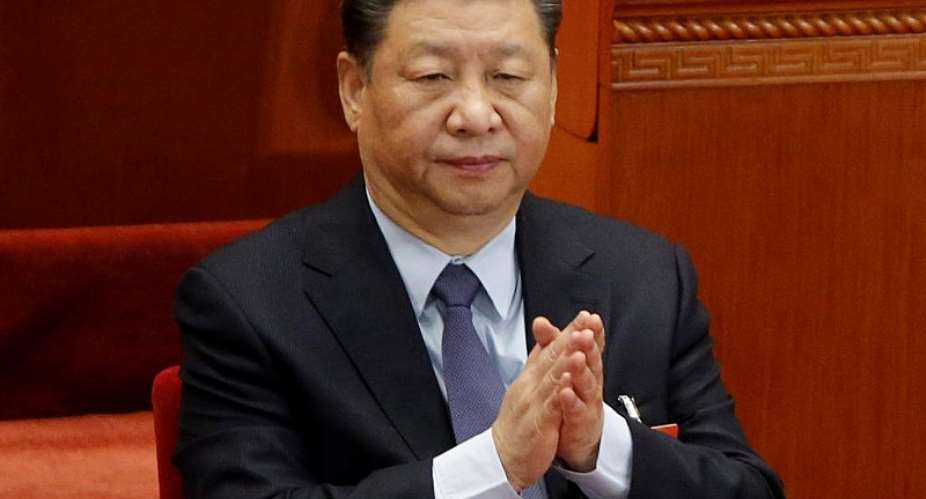Chinese President Xi Jinping began his European tour in Rome against a background of growing Western unease over Italy joining the Belt and Road Initiative. Prime Minister Giuseppe Conte is to sign a memorandum of understanding with Xi on Saturday.
Italy on Friday rolled out the red carpet for Xi, who met his Italian counterpart Sergio Mattarella in Rome.
Around 1,000 extra police have been deployed around the Eternal City for the state visit before Xi heads to Palermo, where his singer wife Peng Liyuan reportedly wants to see the Teatro Massimo opera house.
In what some perceived as a snub, Italy's far-right Deputy Prime Minister Matteo Salvini said he would not attend Saturday's state dinner for Xi at Mattarella's Quirinal Palace.
Salvini has said Italy would be "no one's colony" and urged caution about using telecom giant Huawei's next generation 5G mobile technology. Governing coalition partner Luigi Di Maio is keener for Chinese partnerships.
Chinese buying spree
Chinese firms have invested more than 145 billion euros in Europe since 2010, but investment has been slowing recently as several European governments tighten rules on acquisitions by foreign firms.
Chinese direct investment into the European Union in 2010 totaled just 2.1 billion euros. That climbed rapidly to 20.7 billion in 2015 and then jumped to 37.2 billion in 2016
Chinese firms acquired Sweden's Volvo Cars, Italian tyre-maker Pirelli, French holiday group Club Med as well as the German machine tool firms Kuka and KraussMaffei.
But the volume of Chinese investments has fallen since 2016, declining to 29.1 billion in 2017 and 17.3 in 2018.
Piraeus
Rome is ready to sign up to China's Belt and Road Initiative (BRI), following fellow EU nations Greece, Hungary, Poland and Portugal.
Athens ceded its key port of Piraeus to China's freight giant Cosco, which also controls container ports in Valencia and Bilbao in Spain.
Critics are concerned about Chinese investment in countries which may not be able to pay back the huge loans that come with these infrastructure projects.
Some countries along China's new Silk Road are already deeply indebted to Beijing, including Djibouti, the Maldives and Pakistan. Others, including Malaysia, have pulled out of projects, saying that they are not feasible.
Soaring debt
European clients of China's BRI may draw lessons from Montenegro where the Chinese are involved in the construction of a 165 km highway that includes a 41 km stretch through mountains, requiring bridges and tunnels.
A Chinese loan for the first phase has sent Montenegro's debt soaring and forced the government to increase taxes, partially freeze public-sector wages and end a benefit scheme for mothers in order to get its finances back on track.





 We’ll no longer tolerate your empty, unwarranted attacks – TUC blasts Prof Adei
We’ll no longer tolerate your empty, unwarranted attacks – TUC blasts Prof Adei
 Bawumia donates GHc200,000 to support Madina fire victims
Bawumia donates GHc200,000 to support Madina fire victims
 IMF to disburse US$360million third tranche to Ghana without creditors MoU
IMF to disburse US$360million third tranche to Ghana without creditors MoU
 Truck owner share insights into train collision incident
Truck owner share insights into train collision incident
 Paramount chief of Bassare Traditional Area passes on
Paramount chief of Bassare Traditional Area passes on
 Two teachers in court over alleged illegal possession of BECE papers
Two teachers in court over alleged illegal possession of BECE papers
 Sunyani: Victim allegedly shot by traditional warriors appeals for justice
Sunyani: Victim allegedly shot by traditional warriors appeals for justice
 Mahama vows to scrap teacher licensure exams, review Free SHS policy
Mahama vows to scrap teacher licensure exams, review Free SHS policy
 Government will replace burnt Madina shops with a new three-story, 120-store fac...
Government will replace burnt Madina shops with a new three-story, 120-store fac...
